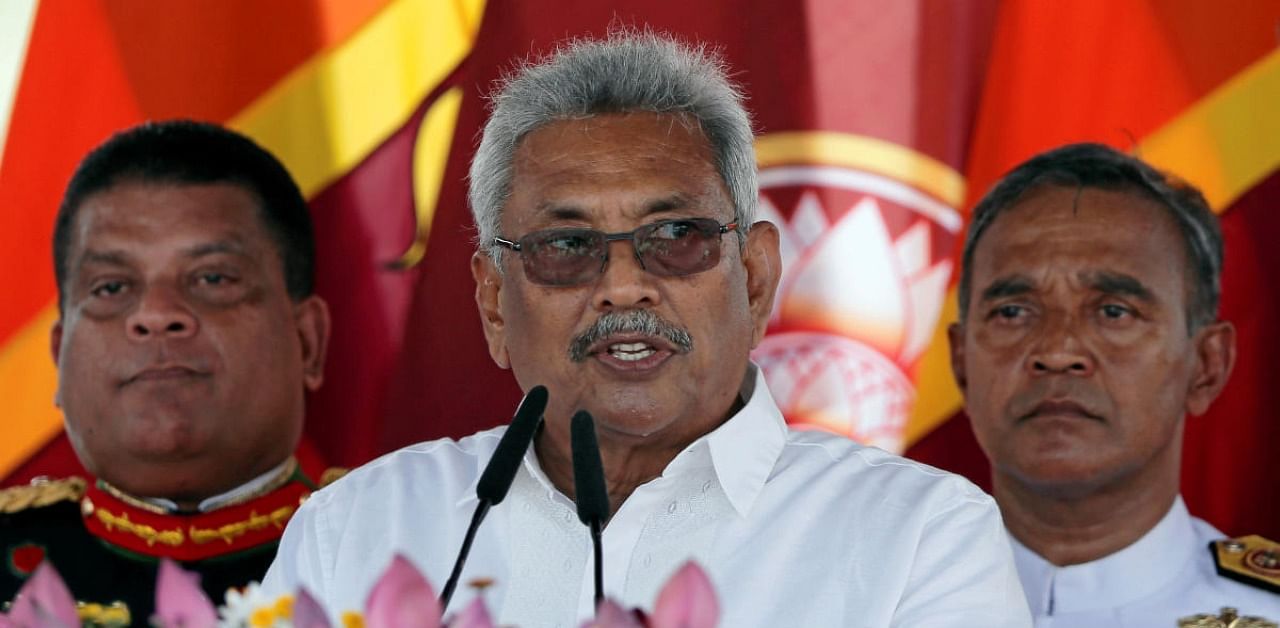
The Sri Lankan government will move as many as five amendments to the proposed 20th Amendment to the Constitution that aims to bolster the powers of the President during the two-day parliamentary debate on the bill that begins on Wednesday.
The government on September 2 gazetted 20A, a new proposed legislation that would replace the 19th Amendment introduced in 2015 that curtailed the powers of the president and strengthened the role of Parliament.
“There will be five amendments moved at the committee stage of the debate,” Udaya Gammanpila, the Minister of Energy told reporters.
He said that there were 4 clauses for which the Supreme Court had ruled must be subject to a referendum.
The Supreme Court's order on the petitions challenging the constitutionality of the amendment was announced by Assembly Speaker Mahinda Yapa Abeywardena on Tuesday, making the way for the two-day debate.
The court ruled that the 20A as a whole was not unconstitutional except for the 4 clauses which needed a referendum. It said that Clauses 3,5,14 and 22 in the amendment in their present form are inconsistent with Article 3 read with Article 4 of the Constitution and requires a referendum.
The Attorney General, on behalf of the government, had pledged that amendments would be made at the committee stage so that no referendum would be required.
“We will make three of the amendments asked for by the Supreme Court while adding two more of our own,” Gammanpila added.
“We will start at 10 am on both days and the debate will continue till 7 pm on both days. A vote will be taken at 7:30 pm on Thursday,” the Leader of the House of Parliament and the Minister of Foreign Affairs Dinesh Gunawardena said.
Ranjith Madduma Bandara, a spokesman for the main opposition Samagi Jana Balawegaya (SJB) said, “the government could not go the distance they wanted to. They had to roll back most of it due to mounting opposition from within their own ranks and from Buddhist clergy.”
The powerful Buddhist clergy in Sri Lanka had expressed opposition to the move which was aimed at giving President Gotabaya Rajapaksa the full executive power over parliamentary checks and balances.
Three politically-influential monks, who are allies of the ruling Sri Lanka People's Party (SLPP), in a letter to President Rajapaksa on Friday said that the proposed change to the Constitution would weaken the position of Prime Minister Mahinda Rajapaksa as well as powers of the Cabinet ministers.
Earlier, two Buddhist sects -Amarapura and Ramanna- in a joint statement, had opposed 20A, saying it would destroy the independence of the judiciary, the public service, the system of elections while undermining the independence of Parliament and members of Parliament individually.
The 20A is meant to annul the 19A which was seen as a pro-democracy, good governance amendment and called for checks and balances in the presidential system while making Parliament more powerful.
The 20th Amendment proposes to restore full legal immunity to the President, removing the provisions made in the 19A to take legal action against the President.
President Rajapaksa was elected with a mandate to abolish the 19A.
During the last November's presidential elections and last month's parliamentary elections, Rajapaksa said that the 19A had made governance difficult as it created a rift between the executive president and prime minister.